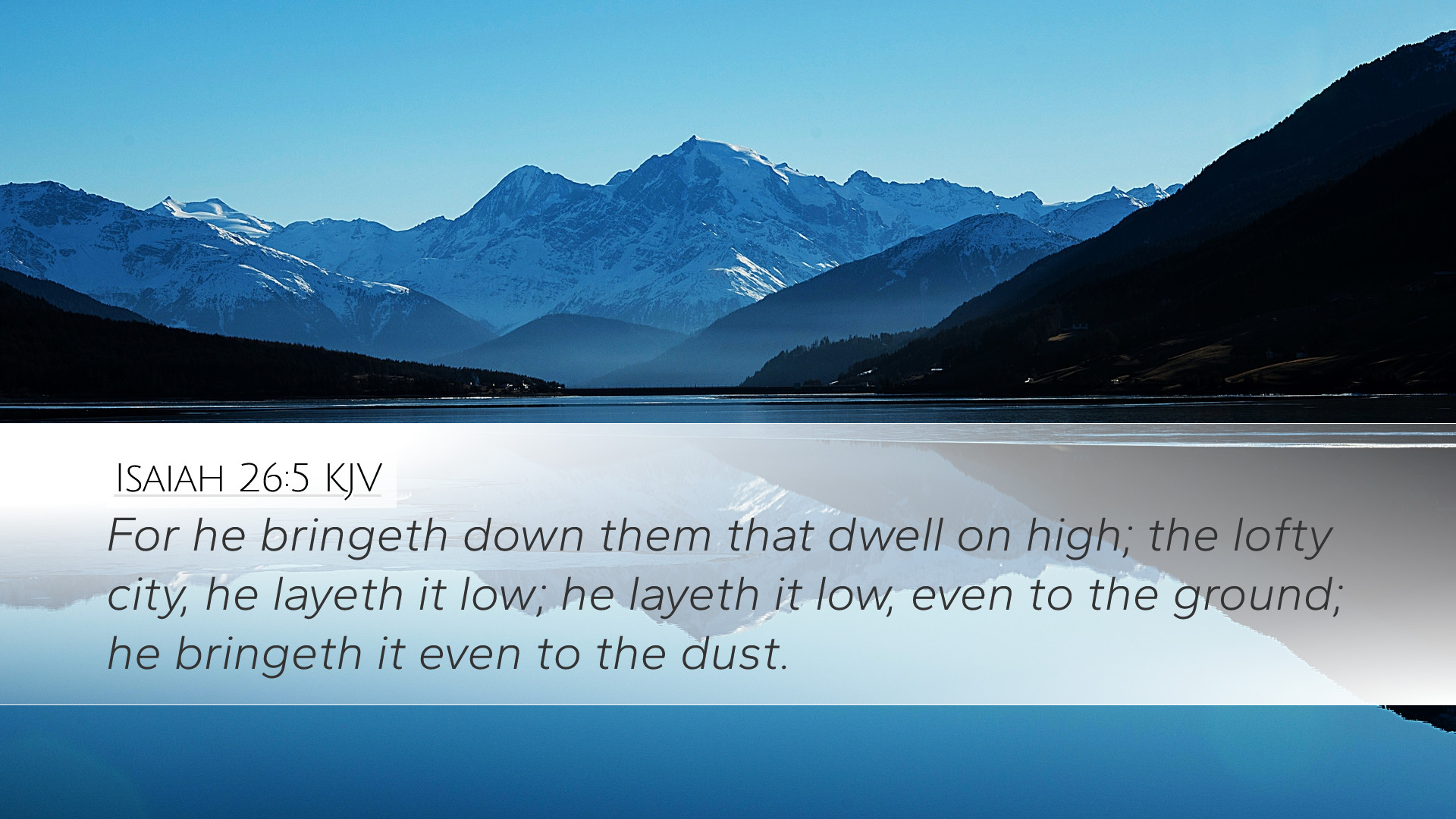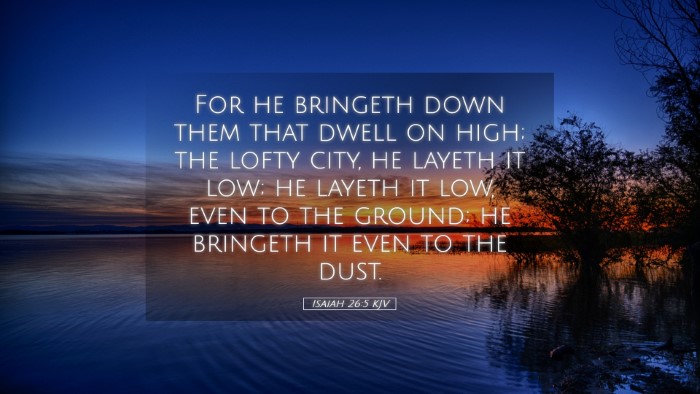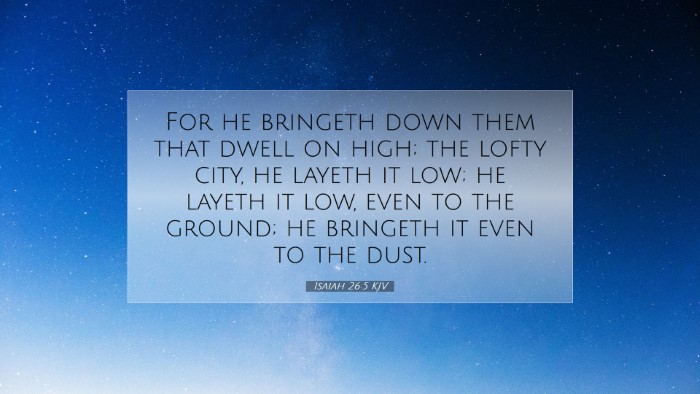Old Testament
Genesis Exodus Leviticus Numbers Deuteronomy Joshua Judges Ruth 1 Samuel 2 Samuel 1 Kings 2 Kings 1 Chronicles 2 Chronicles Ezra Nehemiah Esther Job Psalms Proverbs Ecclesiastes Song of Solomon Isaiah Jeremiah Lamentations Ezekiel Daniel Hosea Joel Amos Obadiah Jonah Micah Nahum Habakkuk Zephaniah Haggai Zechariah MalachiChapter
Isaiah 1 Isaiah 2 Isaiah 3 Isaiah 4 Isaiah 5 Isaiah 6 Isaiah 7 Isaiah 8 Isaiah 9 Isaiah 10 Isaiah 11 Isaiah 12 Isaiah 13 Isaiah 14 Isaiah 15 Isaiah 16 Isaiah 17 Isaiah 18 Isaiah 19 Isaiah 20 Isaiah 21 Isaiah 22 Isaiah 23 Isaiah 24 Isaiah 25 Isaiah 26 Isaiah 27 Isaiah 28 Isaiah 29 Isaiah 30 Isaiah 31 Isaiah 32 Isaiah 33 Isaiah 34 Isaiah 35 Isaiah 36 Isaiah 37 Isaiah 38 Isaiah 39 Isaiah 40 Isaiah 41 Isaiah 42 Isaiah 43 Isaiah 44 Isaiah 45 Isaiah 46 Isaiah 47 Isaiah 48 Isaiah 49 Isaiah 50 Isaiah 51 Isaiah 52 Isaiah 53 Isaiah 54 Isaiah 55 Isaiah 56 Isaiah 57 Isaiah 58 Isaiah 59 Isaiah 60 Isaiah 61 Isaiah 62 Isaiah 63 Isaiah 64 Isaiah 65 Isaiah 66


Commentary on Isaiah 26:5
Isaiah 26:5 (KJV): "For he bringeth down them that dwell on high; the lofty city, he layeth it low: he layeth it low, even to the ground; he bringeth it even to the dust."
Introduction
Isaiah 26:5 presents profound theological insights into the nature of God's sovereignty and justice. The verse illustrates God's power in humbling the proud and exalting the lowly. This commentary draws from the richness of public domain commentaries by Matthew Henry, Albert Barnes, and Adam Clarke to provide a deeper understanding for pastors, theologians, and Bible scholars.
Contextual Background
The context of Isaiah 26 is a song of praise reflecting the hope and faith of God's people. The chapter contrasts the security of the righteous with the fate of the wicked. Israel's confidence is rooted in God's ability to bring low those who oppose Him, especially nations that defy His will.
Verse Analysis
Isaiah 26:5 can be broken down into key components:
Theological Implications
This verse offers deep theological implications for understanding God's nature as sovereign, just, and involved in human affairs:
Pastoral Applications
In pastoral settings, Isaiah 26:5 carries significant applications:
Conclusion
Isaiah 26:5 encapsulates the powerful truth of God’s ability to topple the proud and establish His justice. It serves as both a warning and a source of hope, reminding believers of God’s ultimate authority and the assurance of His kingdom's triumph over human arrogance. This commentary, through the lenses of Matthew Henry, Albert Barnes, and Adam Clarke, helps deepen our understanding of this vital truth for both individual reflection and corporate worship.